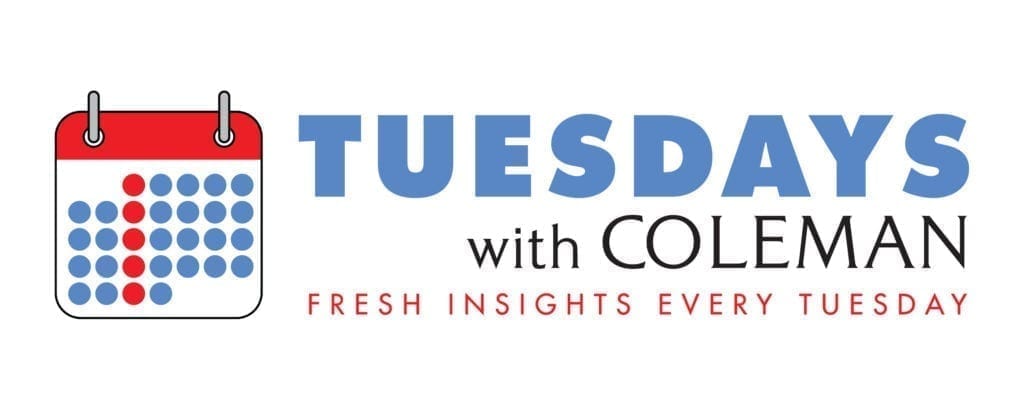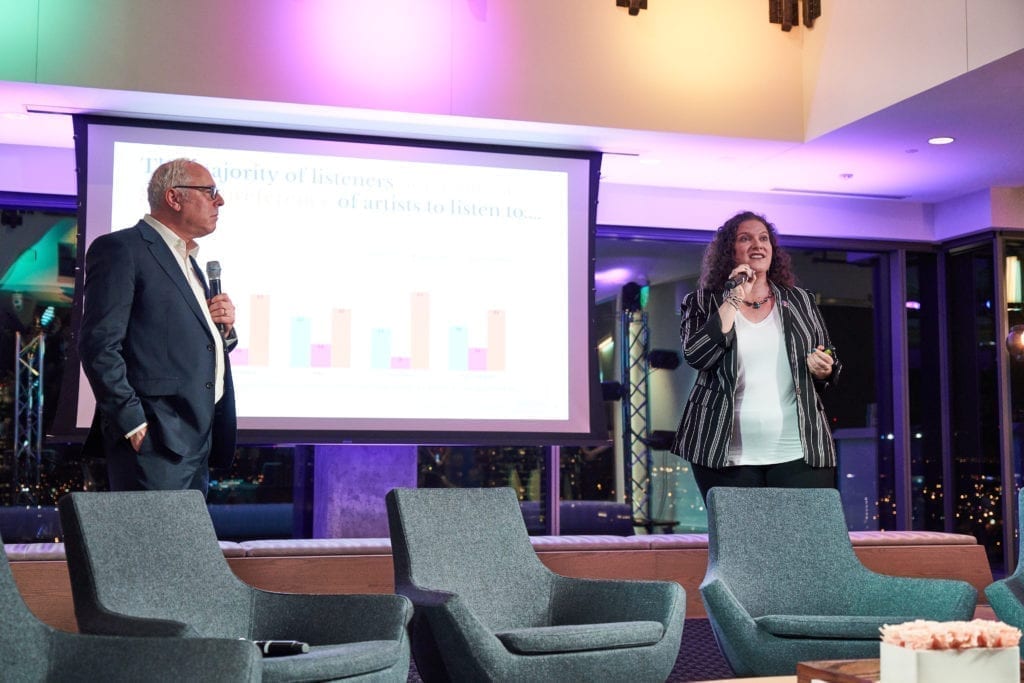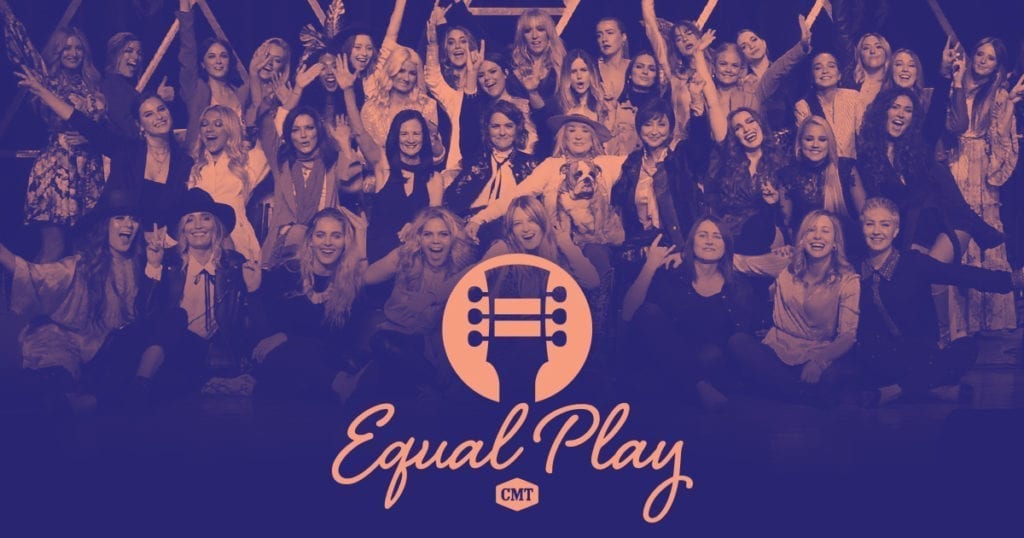
Last Tuesday evening, my colleague Sam Milkman and I had the pleasure and privilege of presenting our findings from a recent study to a room full of Country industry folks—performers, agents, publishers, reporters, etc.—several stories above the streets of Nashville. I’m admittedly bad at estimating numbers of people in a room, but I counted a good number of emphatic head nods, a few breakouts of applause, and a couple of vocalized statements of agreement, so I think we were talking to about 75 people.

Sam Milkman and Jessica Lichtenfeld present at the CMT Equal Play Campaign panel discussion in Nashville. Credit: Daniel Brown for CMT/ViacomCBS
The crowd was gathered to launch CMT’s Equal Play initiative; back in January, the cable net, a ViacomCBS network, announced that it would devote half of its video hours to female artists. This is, arguably, a Big Deal—no network has, as far as I can remember, made such a bold statement with its programming.

The move was inspired by Leslie Fram, CMT’s SVP of Music Strategy and a longtime radio personality and programmer. Leslie is also a founder of Change the Conversation, an organization devoted to improving the environment for female artists in Country music, and she is incredibly passionate about making sure female Country artists—both newcomers and well-established performers—get their due.
It has long been understood that many Country radio programmers limit the exposure of female artists on their stations and have often placed limits on how many songs by female artists that can be played per hour. Journalist Chris Willman tweeted back in January that KKGO in Los Angeles had played two songs by female artists in a row, and “can’t they get fined for that?” Little did Chris know at the time, we had already presented our study to CMT that focused on audience perceptions of this very issue. (Chris was there on Tuesday, by the way, and got a nice round of applause.) How’s that for parallel ideas?
You see, CMT approached us in the Fall of 2019 looking for a research partner to answer some questions about the Country audience. CMT’s goal in commissioning this research was to dispel some of the “conventional wisdom” about Country radio listeners:
- Country fans aren’t interested in hearing songs by female artists
- Listeners think male Country artists have better voices and sing better songs than female Country artists
- Listeners don’t think women play a huge role in current Country music, past or present
- Country listeners don’t want to hear more women on the radio
Sam and I collaborated with the Insights team at CMT—with an assist from our founder, Jon Coleman—to design a survey in which we asked direct questions of the Country radio audience. Our goal was to figure out whether these pieces of “conventional wisdom” were real or imagined, and whether the Country radio audience in the US would be open to hearing more female artists on Country radio stations.
What we found was heartening. Not only are women recognized for the major role they’ve played in the history of Country music and for their current contributions, but Country listeners are also overwhelmingly open to hearing more from women on Country radio. 7 in 10 listeners agree that they want to hear more from women in Country radio and 84% agree with the statement, “I want equal play for female artists on Country radio.” And when we asked our respondents whether they prefer male artists to female artists, over half said they have no preference. Why? Well, at the end of the day, for this majority of Country radio fans, “a good song is a good song, no matter who sings it.”
As we shared this information with the crowd on Tuesday, you could feel the support and the buzz. We’re at a time where many female up-and-coming Country artists have great songs—that they write themselves or for other artists—and stories to tell, and they’re not afraid to be loud. This room of publishers and managers was so supportive, men and women alike, and committed to driving change in the industry. The radio people in the room talked about opening playlists and letting more women in, and not allowing old industry conventions to hold them back from playing great new songs. Publishers talked about encouraging female songwriters and making space for them. Everyone recognized that change won’t happen overnight, but conversations like the ones on Tuesday are a great start to acknowledging that conventional wisdom no longer applies.
And we at Coleman Insights were part of it. Good research provides an understanding of the audience and, in cases like these, the insights you need if you think it’s time to change a conversation.
